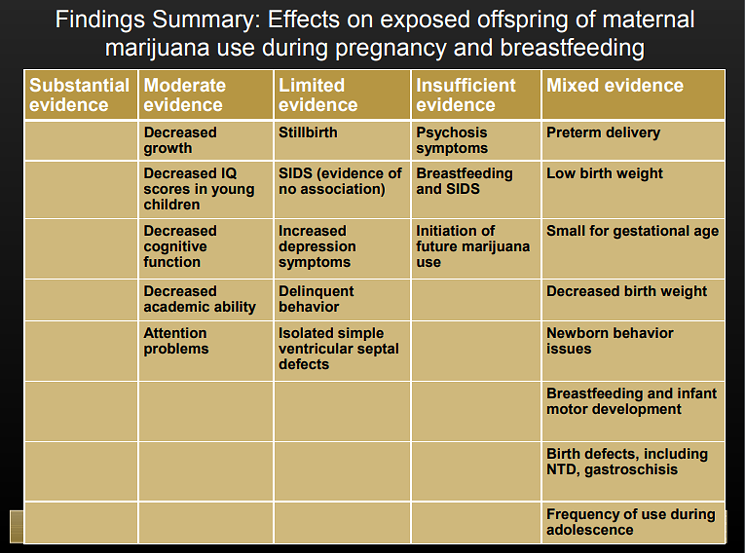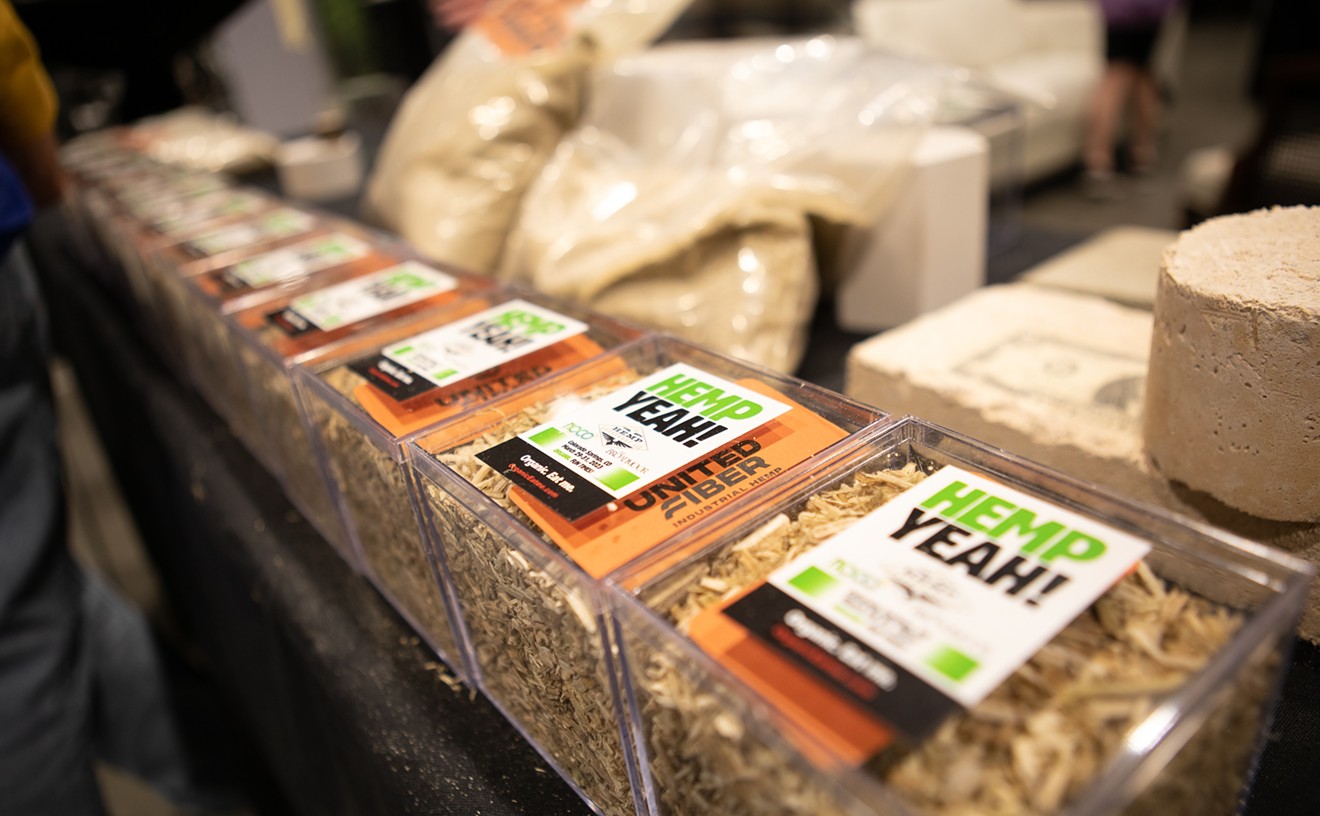Researchers had two women conduct "mystery caller" phone conversations with employees at 400 dispensaries across the state, telling them that they were eight weeks pregnant and suffering from morning sickness. During the majority of those calls, the employees recommended the women use cannabis products.
Dr. Torri Metz, the lead author of the study, says that the study wasn't intended to push policy one way or other, and that the calls were made undercover to collect the most information possible. "We were really interested in what women were hearing," she explains.
The final report doesn't disclose the names of the dispensaries contacted, which were picked at random from a Colorado Department of Revenue list of licensees. "This wasn't about pointing fingers. That's why the dispensaries weren't identified," Metz says. "The goal was to have this end up being collaborative and educational."
Metz says the study results will be shared with the dispensaries and the state health authorities that monitor it, such as the Colorado Department of Public Health and Environment, in order to create educational materials.
The undercover callers contacted medical, recreational and dual-use dispensaries. According to the study, 65 percent of the dispensary employees based their recommendations on personal opinion. Twenty-six percent of the recommendations were for CBD products, 17 percent for THC products, and 56 percent for a mixture of both. Medical stores were the most likely to recommend cannabis for morning sickness, at over 83 percent.
Less than a third of the employees contacted told the callers to consult their health-care providers without being prompted by the caller. And nearly 36 percent told the callers that it was safe to use cannabis while pregnant. "After eight weeks, everything should be good with consuming, like, alcohol and weed and stuff, but I would wait an extra week," one employee reportedly said.
At a press conference announcing the results, Metz called the results "surprising" and "concerning," explaining that using cannabis while pregnant can endanger the fetus and cause long-term harm to a child's cognitive abilities. "I would really encourage all women to talk to their doctors about what they're putting into their bodies during pregnancy," she said.
Some Colorado dispensary owners might be updating their training manuals after hearing the results of the study, according to Kristi Kelly, executive director of the Marijuana Industry Group, which represents over 500 licensed cannabis businesses. Tough consumer questions continue to come up, and it's important that those businesses provide correct answers, she says. "It's not uncommon that people ask a dispensary worker for their opinion, especially after establishing a relationship," Kelly explains. "However, dispensary workers are not doctors, and it'd be inappropriate to present themselves as such."
When customers ask questions about Colorado cannabis laws and regulations, MIG members are supposed to refrain from giving regulatory advice, or at least provide the disclaimer that they're not an attorney when answering such a question, Kelly says. And while she hopes that they're following the same protocol when asked questions that can't be answered without strong scientific evidence, the study's results have her thinking that it's time for a refresher. "We've had some conversation among our membership about this," she notes. "We believe it's appropriate to revisit our training protocols to create some specific language and talking points in the event that a medical conversation comes up."

A 2016 university study assessed possible links between cannabis consumption while pregnant and birth defects.
University of Colorado Anschutz Medical Campus
She says her clinic will only advise pregnant women to use cannabis "if absolutely necessary." Virtually no doctors will recommend medical marijuana to a pregnant woman out of fear of losing their license, she adds, which creates a chilling effect on honest conversation.
According to a 2016 study conducted by the University of Colorado Anschutz Medical Campus, there was no "substantial evidence" that using cannabis while pregnant would result in health issues for a child. But the study did find moderate evidence that cannabis use could lead to decreased growth and lower IQ scores in young children, and also affect their cognitive and academic ability.
As with alcohol, no law bans pregnant women from purchasing or consuming cannabis in Colorado — though all legal products in both industries must carry warnings of the potential dangers of consumption for pregnant women.












